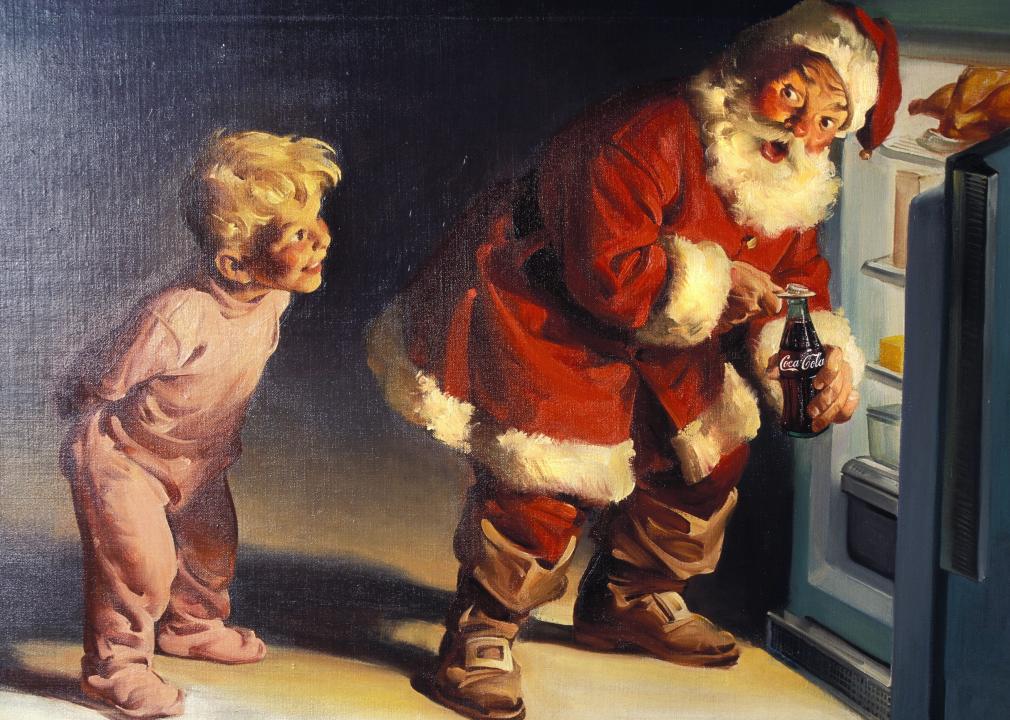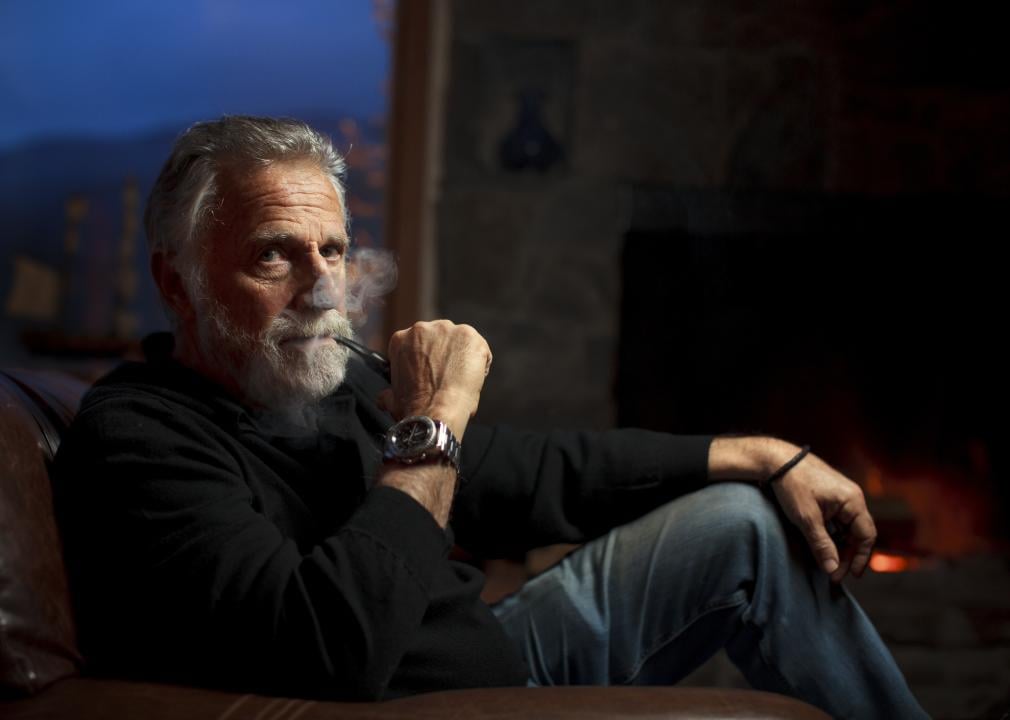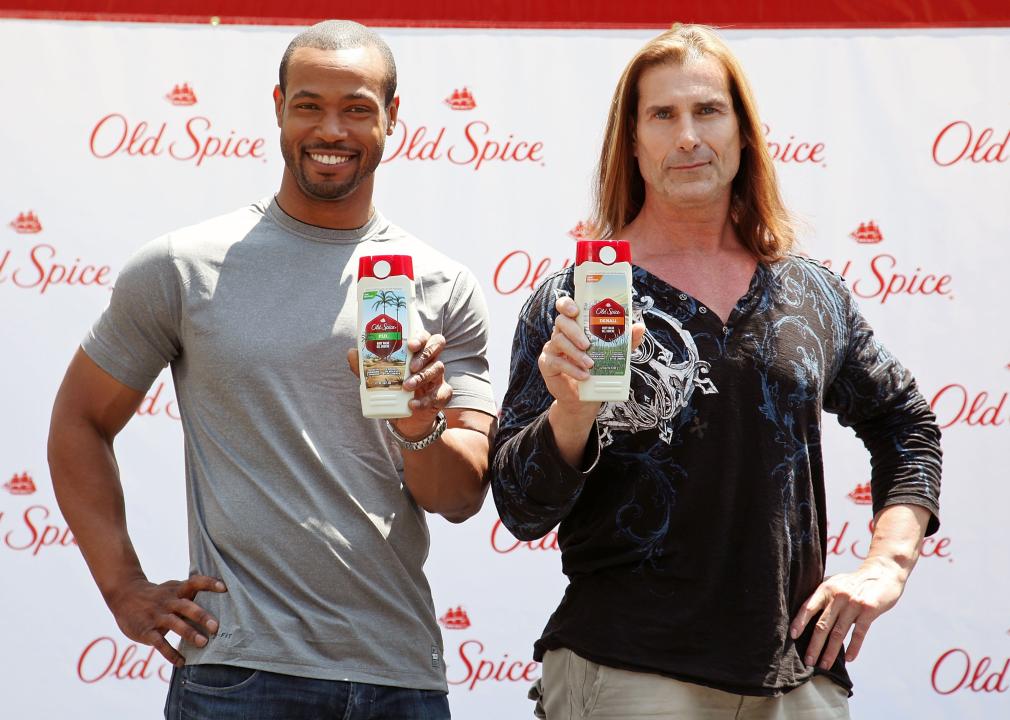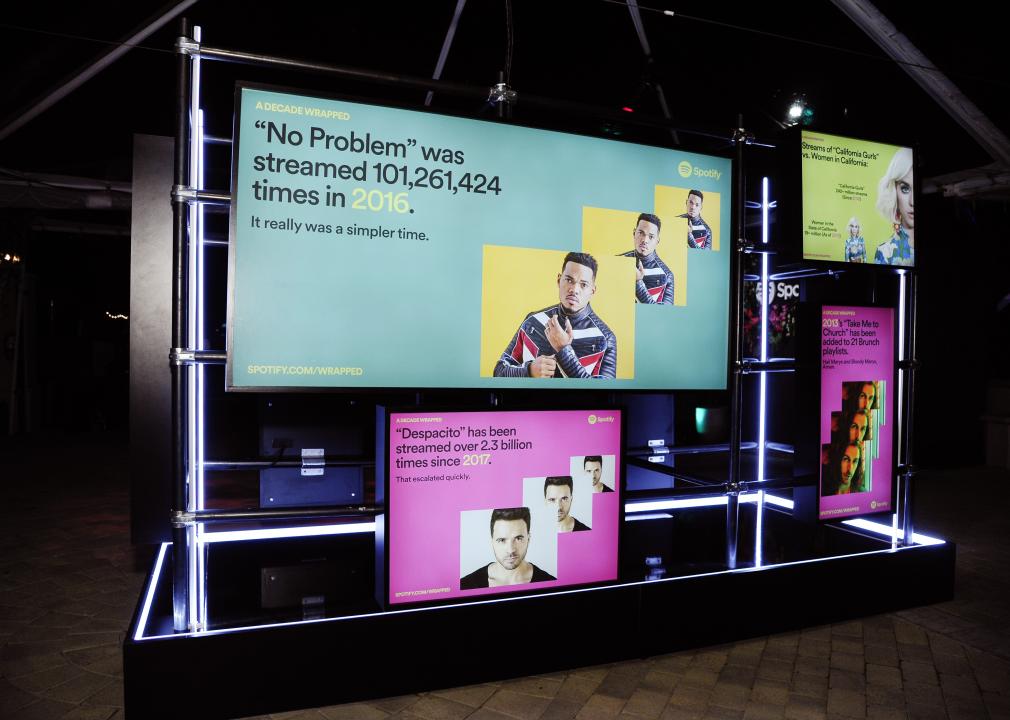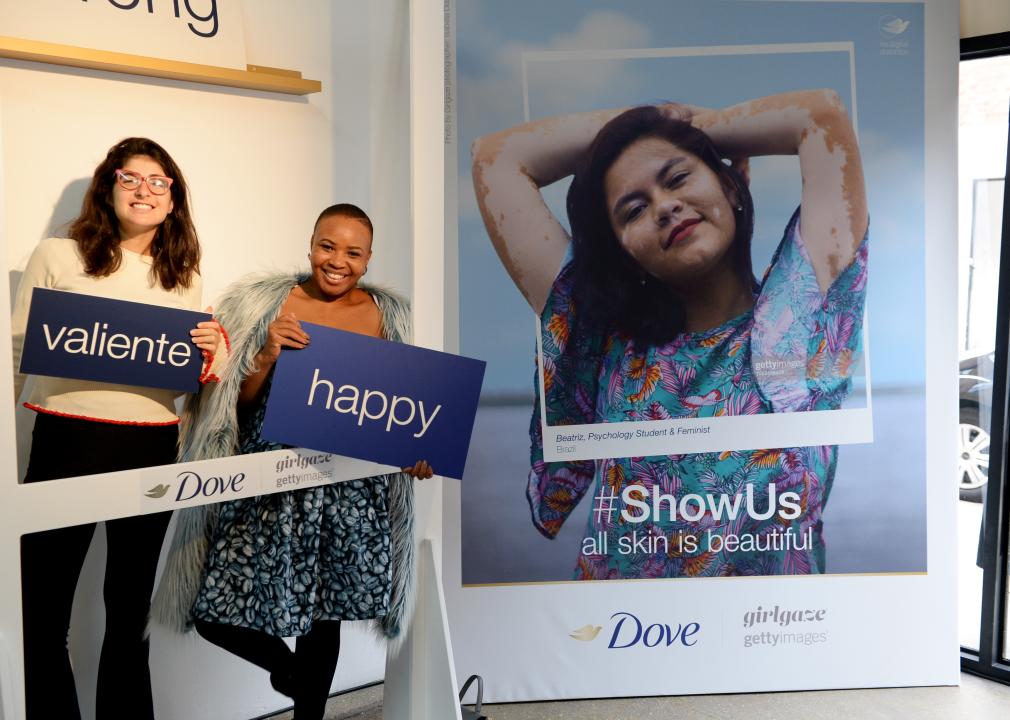13 famous marketing campaigns from the last 100 years
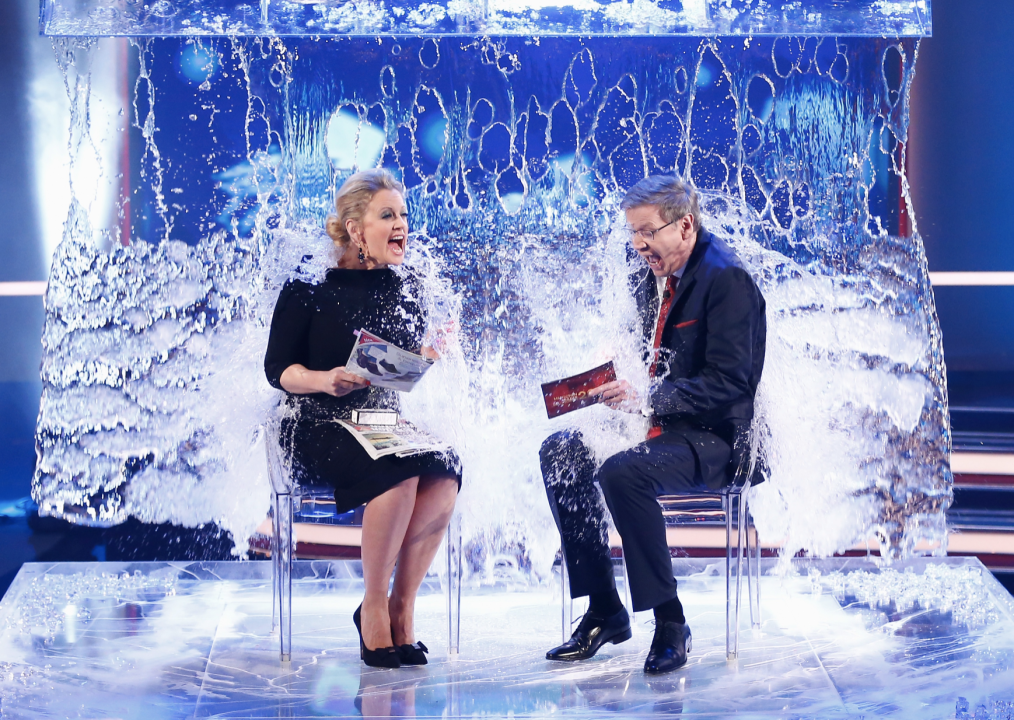
Andreas Rentz // Getty Images
13 famous marketing campaigns from the last 100 years
The first television commercial to air in the world was in 1941 for the Bulova Watch Company, which cost between $4 and $9 to make (less than 4200 in today’s dollars). The costs of advertising are drastically different today: Chanel spent $33 million alone on an ad starring Nicole Kidman in 2004.
Planoly compiled this list of some of the most iconic marketing campaigns of the last 100 years, covering a range of successful ads—from Coca-Cola’s enduring Christmas images to a viral body wash campaign.
Many of us can recall a time when an advertisement convinced us to buy a product or give something new a try. And who hasn’t mouthed along to the words of that familiar jingle you can’t seem to get out of your head? Millions of people tune in each year to watch the Super Bowl just for the commercials alone. Meanwhile, some of the brands and influencers active on social media employ the help of web browsing history and algorithms to curate which ads appear in an individual’s feed. New strategies come and go, but creative marketing campaigns as a whole are most certainly here to stay.
Whether it’s Absolut Vodka proving its brand could stand the test of time, or Spotify’s approach to working with its users to share music data, keep reading to find out who had some of the most popular marketing campaigns to date.
![]()
Pool BASSIGNAC/REGLAIN // Getty Images
Santa Claus’ signature look
– Company: Coca-Cola
– Year premiered: 1931
The jovial, grinning image of Santa Claus has become part of our cultural fabric. But he wasn’t always portrayed that way.
In 1931, Coca-Cola tapped reputable illustrator Haddon Sundblom to create advertising images of Santa Claus as a plump, jolly gentleman wearing Coca-Cola’s signature color red. The soft drink wanted to be affiliated with the holidays, and Santa seemed like a viable choice. As the campaign evolved over the years, images of a cheerful Santa were woven into Coca-Cola’s advertisements—and became the dominant likeness for the iconic character.
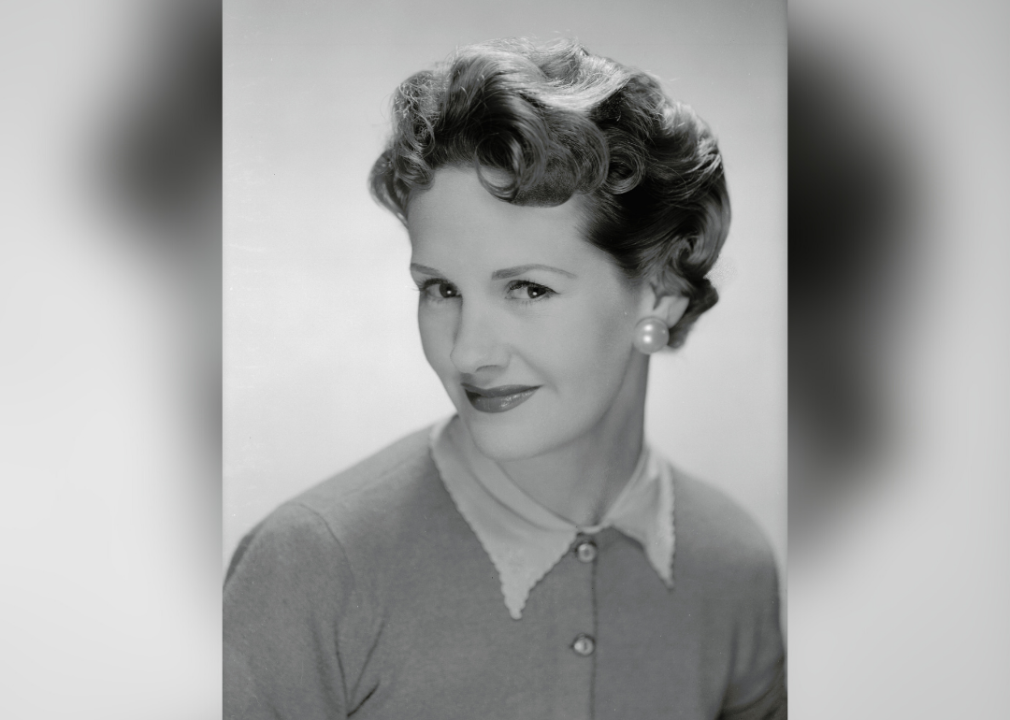
Chaloner Woods // Getty Images
‘Does She… or Doesn’t She?’
– Company: Clairol
– Year premiered: 1956
Who knew a simple question would give rise to a hair coloring revolution?
Shirley Polykoff was the advertising executive behind the catchy slogan, “Does she… or doesn’t she? … Only her hairdresser knows for sure.” The New York Times reported that, shortly after the success of the advertising campaign for Clairol, “sales of dyes, tints and rinses had soared from $25 million to $200 million a year.”
Clairol took the unique—and potentially risky—approach of not asking for women to claim the use of the company’s product. Instead, Clairol wanted to convey the message that their product was so good that no one would be able to tell if it was Clairol or not.
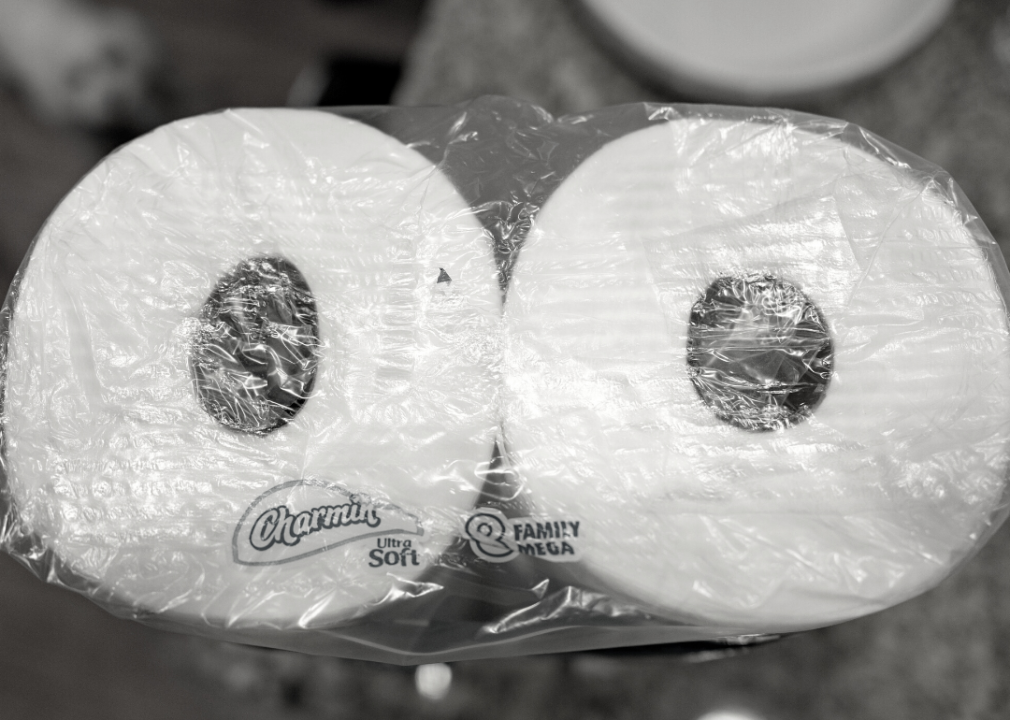
Smith Collection/Gado // Getty Images
‘Please don’t squeeze the Charmin’
– Company: Charmin
– Year premiered: 1969
“Please don’t squeeze the Charmin” is the memorable line created by John Chervokas, who worked as a copywriter for ad agency Benton & Bowles in 1964. The words spoken by the iconic character Mr. George Whipple (portrayed by Dick Wilson) catapulted the Procter & Gamble toilet paper brand to the top.
Mr. Whipple was a fictional supermarket manager who scolded his customers for squeezing the Charmin—only to sneakily squeeze the irresistibly soft tissue paper himself. Mr. Whipple went on to become a recognizable spokesperson for the long-running commercials, which were recognized by Ad Age as one of the best ads of the 20th century.
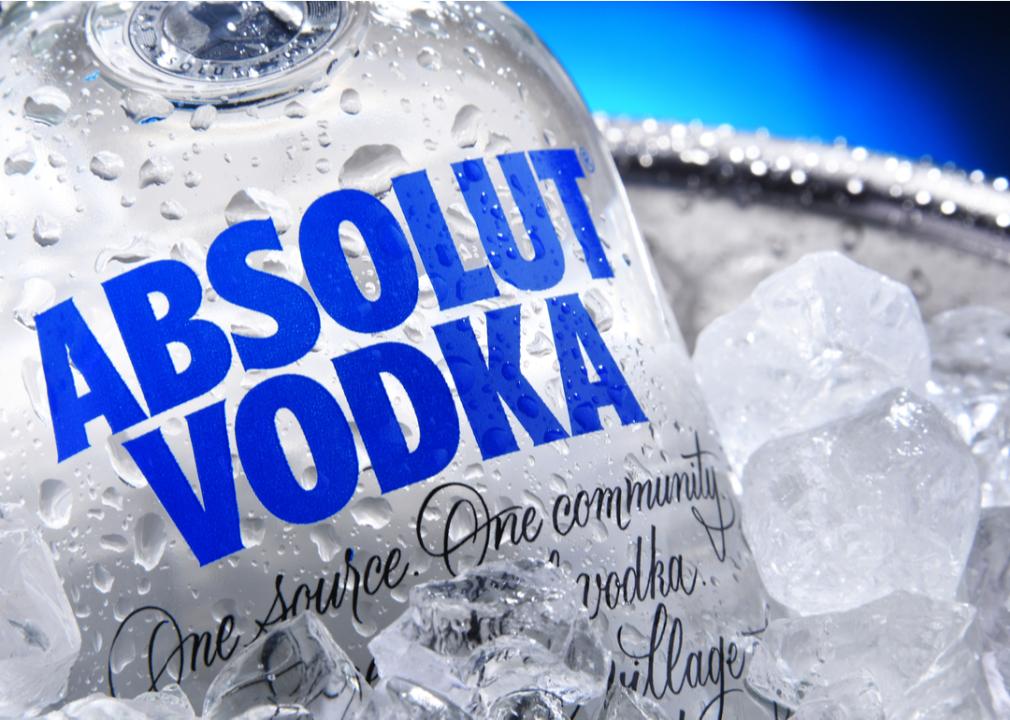
monticello // Shutterstock
Absolut genius
– Company: Absolut Vodka
– Year premiered: 1980
Premium Swedish vodka brand Absolut Vodka launched a marketing initiative in 1980 that turned into the longest-running print campaign in advertising history. At the time, Absolut wasn’t able to keep up with other brands that had larger distribution, so Absolut came up with the idea of developing 1,500 print ads showcasing the uniqueness of its bottles. The brand happened to be a trendy liquor of choice in New York City’s popular nightclub Studio 54, where the bottle caught the eye of Andy Warhol, who frequented the venue.
Warhol approached Absolut and was later commissioned to create designs for the brand’s print ads.
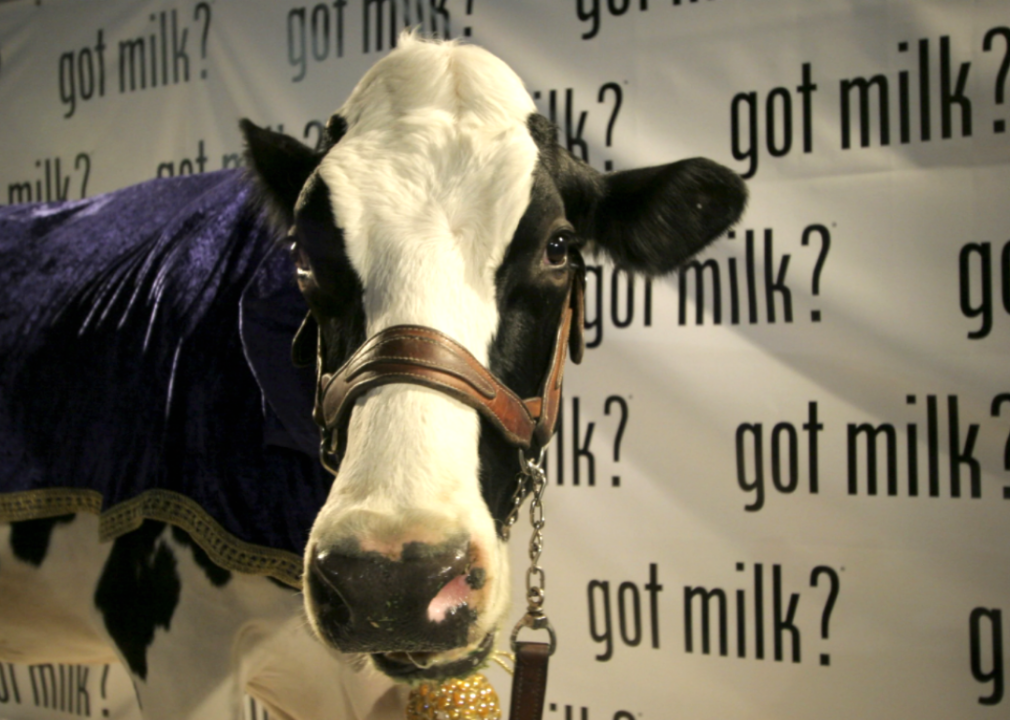
Rebecca Sapp // Getty Images
‘Got Milk?’
– Company: California Milk Processor Board
– Year premiered: 1993
In 1993, San Francisco-based advertising agency Goodby Silverstein & Partners created the “Got Milk?” campaign for the California Milk Processor Board. The ads featured people in various scenarios—whether it was someone preparing cereal, only to realize they didn’t have milk in the fridge, or someone about to have a chocolate chip cookie, realizing there was no milk to wash it down with.
The “Got Milk?” slogan was licensed in 1995 to national dairy boards for them to use in celebrity print ads. Several celebrities have since participated in the campaign over the years, proudly flaunting their milk mustaches. The national campaign was managed by the Milk Processor Education Program and, in 2014, the group announced it would discontinue licensing the catchphrase, adopting “Milk Life” as the new tagline instead.
The California Milk Processor Board who created and owns the trademark, however, still uses the slogan. The “Got Milk?” campaign has won several awards, including Northwestern University’s Out of the Box Award.
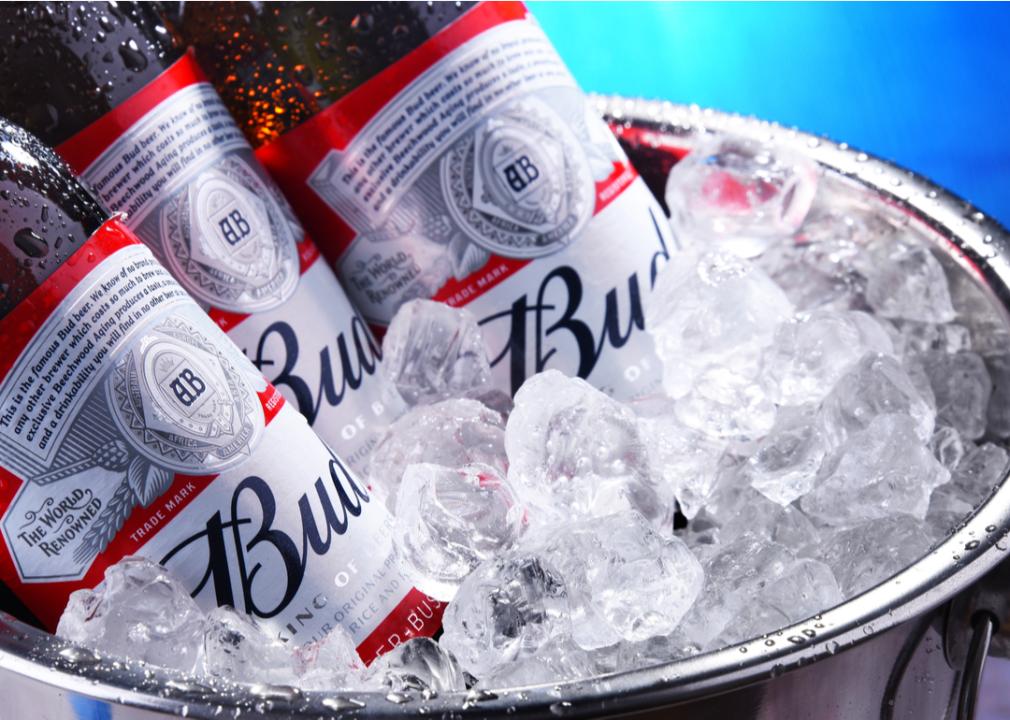
monticello // Shutterstock
The ‘Whassup’ campaign
– Company: Budweiser
– Year premiered: 1999
Budweiser’s “Whassup” ad first debuted in December 1999 during “Monday Night Football.”
The beer commercials were derived from a short film written and directed by Charles Stone III titled “True,” which is about how he and his friends greeted each other in their own unique way. The short film caught the attention of an executive at Doyle Dane Bernbach, a Chicago-based advertising agency.
The “Whassup” ads aired from 1999 through 2002 and in 2000 alone, Anheuser-Busch sales grew by 2.4 million barrels to 99.2 barrels. The commercials received a slew of accolades, including the Grand Prix Award.
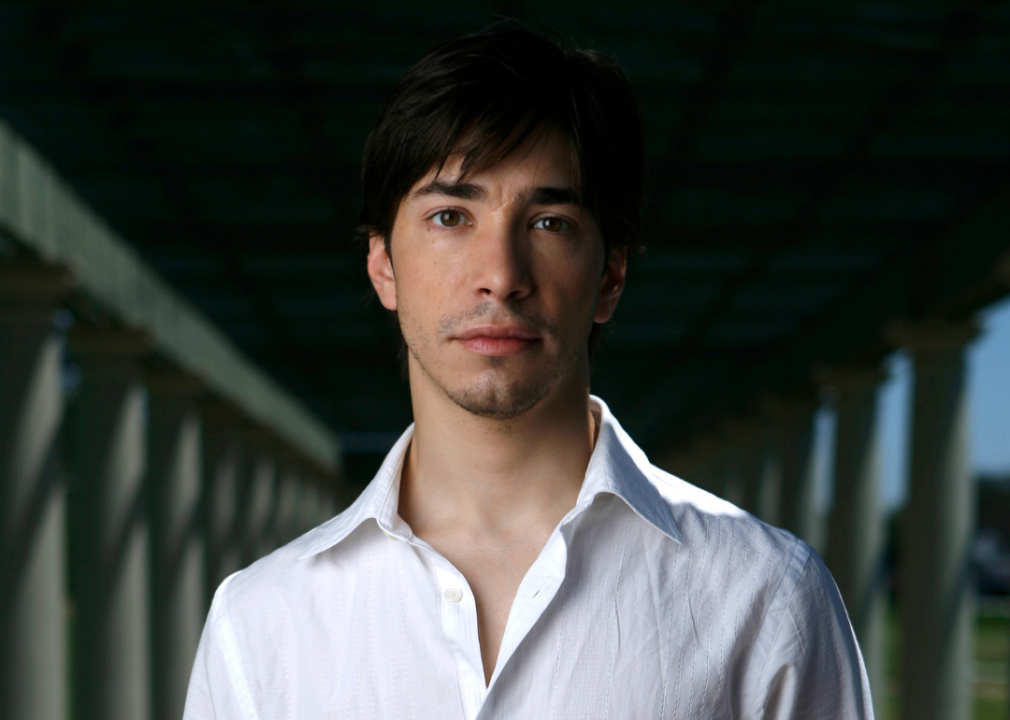
Myung J. Chun/Los Angeles Times via Getty Images
‘Get a Mac’
– Company: Apple
– Year premiered: 2006
In 2005, Apple saw a decrease in its Mac laptop sales and sought out a way to boost business growth. Co-founder and CEO Steve Jobs wanted an advertising campaign that would highlight the difference between Macs and PCs without coming across as a super aggressor to other brands while simultaneously having Apple’s Macs stand out. He also didn’t want the ads to be very comical.
The “Get a Mac” ads debuted in May 2006, starring actor Justin Long as a younger version of Steve Jobs, or the “cool Mac guy,” and John Hodgman as the “PC guy,” or rather, Bill Gates. The “Get a Mac” commercials aired until October 2009; that year, Adweek named the series of ads one of the best campaigns of the decade.
Boston Globe // Getty Images
The most interesting man in the world
– Company: Dos Equis
– Year premiered: 2006
We all know the line: “I don’t always drink beer, but when I do, I prefer Dos Equis.” The Dos Equis commercials starring the ever so dapper Jonathan Goldsmith began appearing in the U.S. in 2006. A plethora of memes quickly followed—and remain widely used today. Dos Equis’ ad campaign led the beer company’s sales to surge by 22% in 2009, even as other beer imports lagged with the meteoric rise of craft beers. Despite being widely popular, however, the commercials ended in 2018.
Brian To // Getty Images
‘The man your man could smell like’
– Company: Old Spice
– Year premiered: 2010
After catering to a more mature audience for years, Procter & Gamble’s Old Spice brand sought to appeal to a younger demographic.
A 2010 advertising campaign spearheaded by Wieden+Kennedy would help to reinvent the company’s image. The “Man Your Man Could Smell Like” advert launched online during Super Bowl weekend and was televised shortly afterward. Following market research and learning that more women purchased body wash than men, Wieden+Kennedy’s vision was to start a discussion between couples about body wash and in a comical way to convince women to stop purchasing “girly scented” products for men. The campaign was a mega-success as it aired during a targeted time for a major event where couples would be watching together.

FREDERIC J. BROWN/AFP via Getty Images
‘The Force’ transforms the Super Bowl
– Company: Volkswagen
– Year premiered: 2011
Volkswagen’s “The Force” has remained one of the most-watched Super Bowl ads of all time and is considered by many a game-changer in how advertising was viewed during the major event.
The commercial for the Volkswagen Passat, created by advertising executives at Deutsch LA, features a young boy in full Darth Vader garb attempting to do various things such as wake up a dog, start a washing machine, and wake up a baby doll using the Force. After his unsuccessful attempts, the boy discovers he can get the car to start, but it’s actually his dad who does it via remote control.
Volkswagen worked with Deutsch LA and MediaCom and they decided to prerelease the 60-second commercial four days before the Super Bowl, a move that wasn’t usually done in the advertising space. Viewership of the 60-second advert went into the millions shortly after the commercial made it to YouTube. On the actual day of the Super Bowl, 30 seconds of the ad were aired.
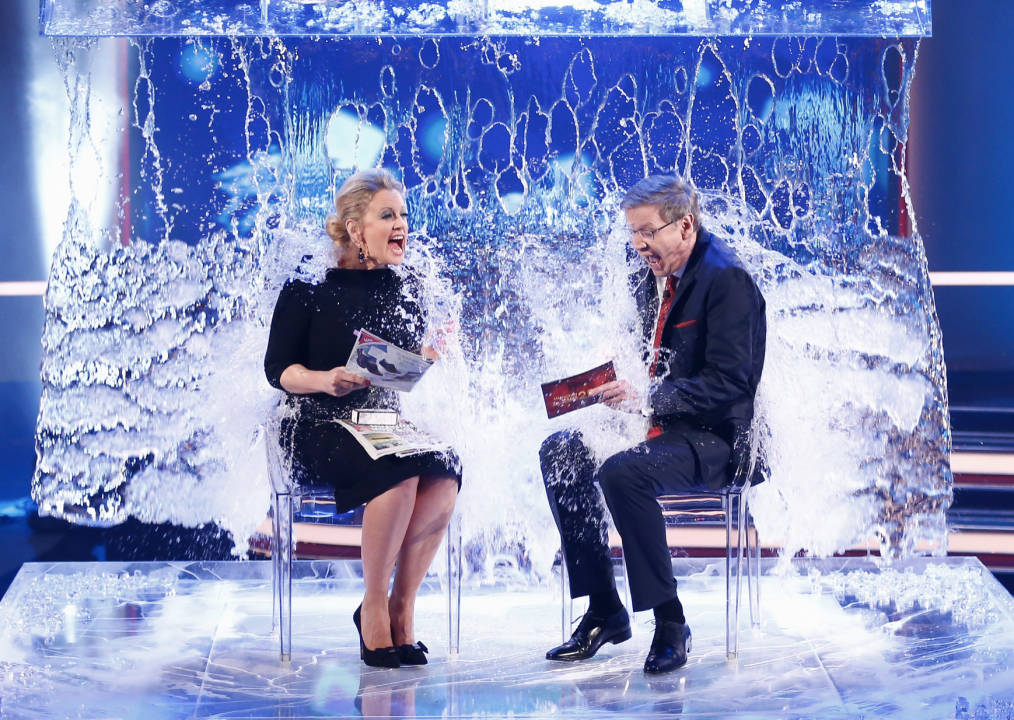
Michael Hickey // Getty Images
The ice bucket challenge
Company: N/A
Year premiered: 2014
The wildly successful ice bucket challenge was reportedly started by Patrick “Pat” Quinn, who at the time had been battling amyotrophic lateral sclerosis, also known as motor neuron disease.
The social media challenge involved a person pouring a bucket of ice over their head for the purpose of creating awareness of ALS and garnering donations for research, and then tagging others online to do the same. Quinn died in 2020, but his visionary viral campaign raised more than $220 million for ALS global research.
John Sciulli // Getty Images
‘Wrapped’ is a social media hit
– Company: Spotify
– Year premiered: 2015
Spotify first launched its annual music campaign in 2015 with the title “Your Year in Music.” In 2017, the campaign was renamed “Wrapped.” Each December, Spotify sends its users the top artists they listened to throughout the year as customized data cards in a shareable format. This allows users to share their data cards on their social media channels. In December 2021, the hashtag #SpotifyWrapped spent a few days trending on Twitter, with Spotify benefiting from the additional marketing done by its users as well as the data the company was able to collect.
Nicky J Sims // Getty Images
#ShowUs redefines beauty standards
– Company: Dove
– Year premiered: 2019
Dove sought to redefine how women are represented with the Project #ShowUs. In partnership with Getty Images, the largest international stock photo distributor, and Girlgaze, a digital photography network, Dove created a massive photo library demonstrating more inclusive images of beauty.
Dove formed a first-of-its-kind partnership with Hearst, focusing on publications geared toward women. The publications were given access to the images with a challenge to integrate them into relatable, engaging content. Dove’s library collection has more than 11,000 images created by women, women-identifying, and nonbinary individuals.
This story originally appeared on Planoly
and was produced and distributed in partnership with Stacker Studio.
